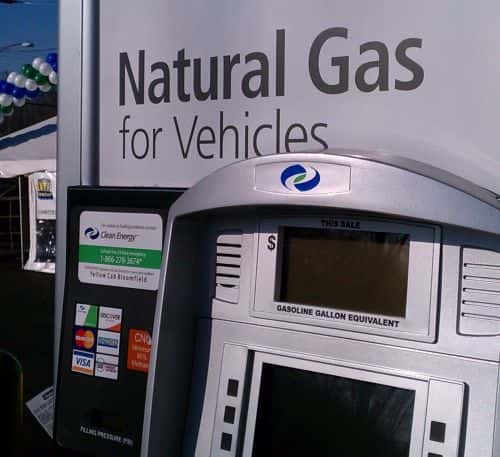 Stakeholders from various Canadian industries gathered in Ottawa late last week to officially launch a comprehensive program aimed at broadening the use of natural gas vehicles (NGVs) among the country's commercial fleets.
Stakeholders from various Canadian industries gathered in Ottawa late last week to officially launch a comprehensive program aimed at broadening the use of natural gas vehicles (NGVs) among the country's commercial fleets.
The plan, known as the ‘Natural Gas Use in the Canadian Transportation Sector – Deployment Roadmap’ initiative, was announced earlier this year by Natural Resources Canada (NRCan) and the Canadian Natural Gas Vehicle Alliance (CNGVA). The multi-discipline initiative has drawn wide support from both public agencies and the private sector, with Canada's major oil and gas companies, fleet operators and automotive equipment manufacturers providing input about potential strategies for jump-starting a robust NGV marketplace.
The roadmap's initial focus, according to NRCan and the CNGVA, will be to promote the adoption of medium- and heavy-duty NGVs – mainly buses and trucks – among inter-regional and urban fleets.
‘Collaboration will accelerate fleet use and create the right conditions for even greater private sector investment,’ said Encana Corp.'s Wayne Geis, in a statement. Geis is also incoming chairman of the CNGVA.
NRCan's ecoENERGY for Alternative Fuels group has been tasked with spearheading the initial objectives of the roadmap, starting with the creation of a national website dedicated to the roadmap and its long-term goals. The group will also lead the development of a pair of ‘regional resource hubs’ that will help fleets better integrate NGV technology into their operations.
A more technically challenging early objective spelled out in the roadmap relates to nailing down technology codes and standards that will help facilitate a smooth transition to natural gas for fleet operators.
NRCan says it worked extensively with various stakeholders 15 to 20 years ago to develop standards and codes for both NGVs and compressed natural gas (CNG) refueling stations. However, NGVs simply were not deployed in significant numbers in the ensuing years, and those standards-development efforts fell to the wayside.
The roadmap process included a review of existing codes and standards, and NRCan is now seeking to ascertain which standards are still applicable and to form committees to address lapses and emerging technologies. Updated standards will be critical going forward, particularly with the complement of new purpose-built NGVs, CNG conversion systems and other equipment advancements in the marketplace.
Photo by NGT News






